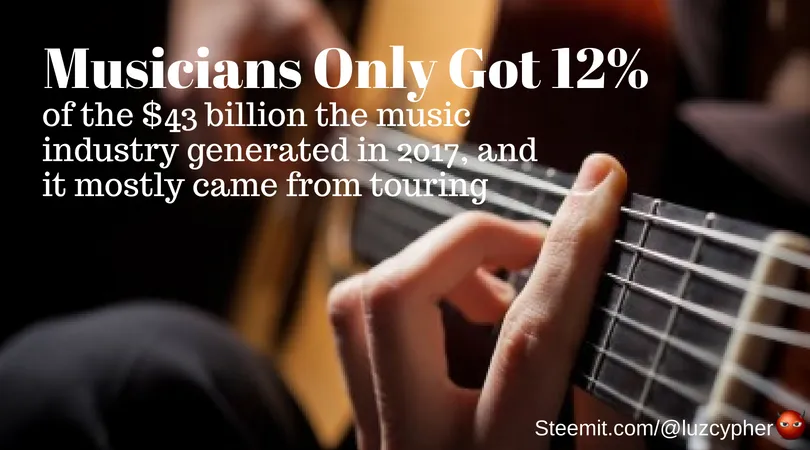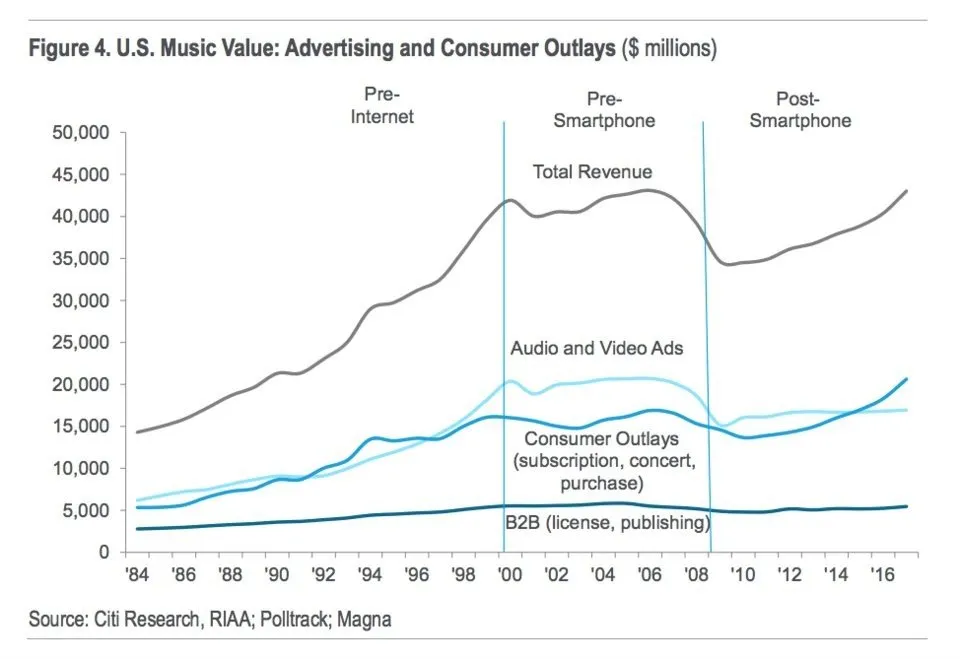According to a report by Citigroup musicians only got 12% of the $43 billion the music industry generated in 2017, and it mostly came from touring.
The last year the music industry earned $43 billion was in 2006 and back in 2000 artists only took home a 7% share of the revenue, so it has actually increased since then at 12%.

Artists still earn a small percentage from streaming their music but the majority of their income is from touring. Touring is the most expensive part of the music business and the report did not account for the costs of touring so there is no way to know how much of that revenue artists actually got to keep.
The report went on to say the trend in music sales in the industry is "organic forms of vertical integration" where streaming providers like Apple Music and Spotify could "organically morph into music labels," allowing artists to release their works directly with their services.
Bjorn Niclas, a cofounder of Choon, a cryptocurrency-based music streaming service, concluded the report with an alternative view speaking on behalf of the artists.
"Currently artists are at the end of the line," Niclas said in the report. "They get the smallest piece of the pie even though they are the ones creating the content. In any other industry, you typically see much better returns and margins." source

According to Citibank's website CitiVelocity.com
With this backdrop, we think there are three ways the industry’s structure could evolve.
First, we could see vertical integration. For example, concert promoters could merge with an existing distribution platform.
Second, we could see horizontal integration. For example, existing distribution firms could consolidate.
Third, we could see organic forms of vertical integration. That is, existing web-based distribution firms could organically morph into music labels (by targeting younger, less established artists). This would allow artists to capture more of music’s value while allowing Internet-based music distributors to capture profit pools currently earned by the music labels. source
While this third option looks promising, incorporating a cryptocurrency-based music streaming service directly from the artist to the consumer sounds like the future to me. Programming a smart contract right into the song file to divide royalties between artists, publishers, and streaming services would keep all contracts legit and adding a feature that locks the song from being downloaded until a certain amount of crypto was transferred to a wallet would prevent theft of a work.
It's only a matter of time before blockchain technology will be used by artists to ensure they get their share of the music business pie seeing how they created the content. Smart contracts could be written for ticket sales, merchandise, radio spins, mechanical royalties, streaming revenue, and just about anything else an artist can control in their careers.
For further interesting reading about the music business you can read the full report titled, "Putting The Band Back Together - Remastering The World Of Music"
This report will give you a good idea of where the music business thinks it's going in the future, but it's up to the artists to use crypto to grab back the fruits of their labor.
Related Posts
Music Creators Guide To Copyrights Royalties And Recording Contracts --- by @luzcypher
